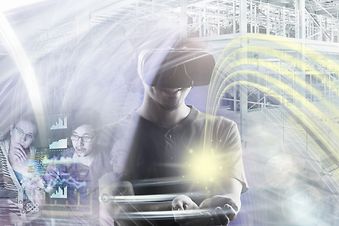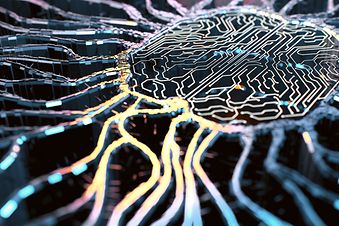
Artificial intelligence (AI) is a branch of information technology that deals with the automation of intelligent behavior. AI is the attempt to program a computer so that it is able to process problems independently, similar to the way a human with the appropriate training would. Problem solving means making decisions that constitute an appropriate response to the underlying problem within a specified time, based on data from various sources (databases, sensors, video cameras, etc.).

Machine learning is a collective term for various processes used to determine an unknown functional inter-relationship between input and output data. In addition to still-important traditional applications such as cluster formation, regression, factor and time series analyses, it also integrates more complex methods such as neuronal networks, evolutionary approaches and support vector machines.

... studied technical mathematics at Vienna University of Technology (TU Wien), having specialized in simulation, operations research, and statistics. After completing his studies, he spent time in Glasgow, where he researched kernel methods for use in discrete event simulation models. In 2001 he joined the Seibersdorf research center, firstly as a project manager, later becoming head of the "Process optimization" work group, where he conducted and managed national and international research projects on transport logistics, location-specific logistics, and global supply chains. Whilst still carrying out his research, he also began teaching at various higher education institutions across Austria, which later became his main profession.
Markus Klug has been part of SSI SCHÄFER IT Solutions GmbH since 2013. He was originally responsible for building up data analysis and simulation within the company, a role which later grew to encompass data science and artificial intelligence/machine learning. As a military expert for reserve force logistics with a particular focus on military operations research, he also acts as a consultant for the Austrian army, providing expert advice about the development of mathematic models and processes in the military sector. Markus Klug has extensive knowledge and experience, as demonstrated by his various academic publications, lectures, membership of academic program committees, session chairs at academic conferences, and his capacity as a reviewer for international specialist journals.

Georg Rief has a bachelor's degree in computational sciences and a master's degree in physics. He focused mainly on simulation and data science, as artificial intelligence was not a particularly important topic at that time and was therefore not central to his studies. He had 8 years of experience in software development in other sectors before coming to SSI SCHAEFER in March 2014. Initially he worked as a W4 developer for customer projects, before transferring to the data science/simulation department in December 2016.

Karina Konrath studied technical mathematics at Graz University of Technology and has been working for SSI SCHAEFER since November 2017. As a data scientist, she is largely responsible for the analysis and preparation of data, which requires the intensive use of statistics and mathematics.